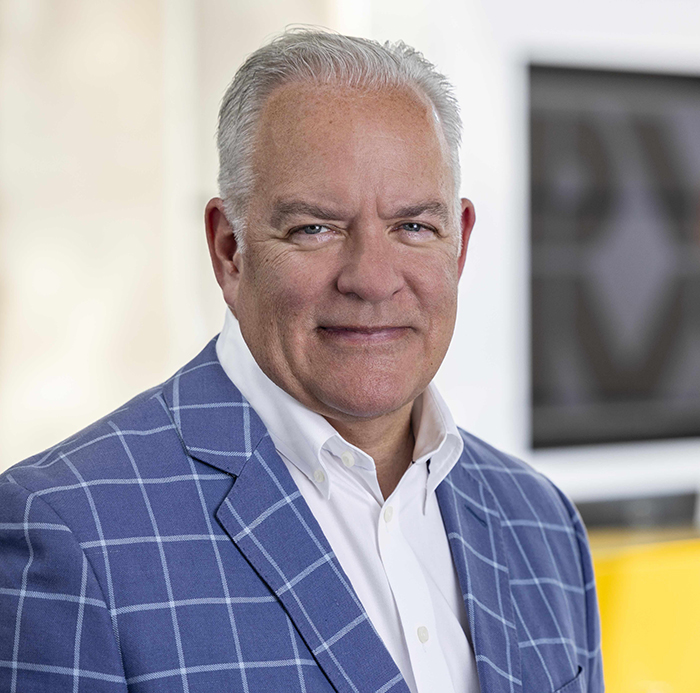Outlook From the C-Suite: Trade Show Industry Leaders Share Their Biggest Business Concerns

Geopolitics and political uncertainty now pose the greatest risk to business growth, according to a recent survey of more than 1,300 CEOs of the world’s largest businesses. The persistent flux in global politics, trade dynamics and international relations has required a new level of resilience from business leaders, who have been tasked with re-assessing their strategic priorities, focusing on the rise of generative AI, talent management and elevated stakeholder expectations in addressing environmental, social and governance (ESG) issues.
Derived from the KPMG 2023 CEO Outlook — the annual survey conducted by KPMG International that provides unique insights into the mindset, strategies and planning tactics of CEOs — these results also show that while confidence in the global economic outlook over the next three years remains broadly unchanged since the 2022 survey (73% compared to 71% last year), there has been a significant shift across CEOs’ views on what constitutes a risk to their business.
The greatest risks these CEOs cited in 2023 include:
- Geopolitics and political uncertainty
- Operational issues
- Emerging/disruptive technology
- Supply chain
- Regulatory concerns
- Environmental/climate change
- Interest rates
- Cybersecurity
- Reputational risk
- Talent
So how do these risks resonate with trade show and events CEOs? TSNN asked several leading event industry leaders what their top business concerns are now and moving into 2024, and how they and their organization are addressing them. In Part One of our series, we share the perspectives of CEOs from two leading global trade show organizers, and in the coming weeks, we will share perspectives from C-level executives who represent contractors, experiential marketing agencies and venues.
Hugh Jones, CEO, RX
Biggest concern: Environment and climate change
I share all these concerns. With regards to the environment and climate change, this is one that we can impact on multiple fronts. At RX and throughout the events landscape, we are making great strides in this area, which is a testament to our industry’s perseverance.
2022 was the year the industry made its commitment to bringing sustainability to our shows and to our customers. In 2023, we have accelerated our efforts to measure our carbon footprint, including emissions data from shows at our top 30 venues. We share best practices among shows so that our customers can benefit from the ideas and innovations across sectors.

In February, we launched RX’s new Sustainability Playbook to inform and support our event and operations teams to make more sustainable event choices, and this November we launched our RX Net Zero Carbon Events roadmap, which sets out our pathway to halve greenhouse gas emissions by 2030 and achieve net zero by 2040.
Events offer the efficiency of bringing everyone together at one time. We are working with our sectors across the business to help them with their individual sustainability missions, and we’ve already seen phenomenal changes to the way our venues, events, teams, visitors and exhibitors are working. It’s such an important topic, and one where we know we can really make a difference.
As I mentioned in a recent RELX podcast, we believe that in the future, fewer people will go to exhibitions, but those people will have more buying power. What I mean by that is because of ESG conflicts, carbon footprints and tightening spend on business travel, the idea of business tourism — you get to do this job, and if you do it well, you get to go to the fun trade show – that will probably die out. More senior people will go to the trade shows, and they will be coming with very senior points of view to do big business. You might not send 50 people to a trade show as a bit of a perk. You might send 10 instead to build business.
Seeing full trade shows and not being able to see what used to be carpet beneath their feet is no longer a good barometer of a good trade show. A good trade show's barometer is not how many square meters or feet an exhibitor takes. The barometer is how much business is done. There will still be fun and networking, but that will change. The face of trade shows will change to be a more serious place where business is done. That is for sure. It is our duty as a trade show not to put on the same old show every single year, but to place the bets and show the industry what is coming, what is new and what we should pay attention to.
Patrick Martell, CEO, Informa Markets and COO, Informa Group
Biggest concerns: Environment and Disruptive Technologies
Identifying, assessing and managing risks is an ongoing activity at Informa and many of the factors this report identifies will be topics of discussion for businesses of all types and sizes. We all know we are living in a world of higher inflation today than five years ago, and that has caused challenges for some markets and communities. One of the great characteristics of exhibitions is that they help businesses to trade, find customers and build commercial relationships in a very time- and cost-effective way, and this makes trade shows more valuable now than ever before.
Other matters highlighted that resonate with our business include: environmental and climate change – a topic that is of ever-increasing importance to our customers, shareholders and colleagues – and the impact of emerging and disruptive technologies, which are transforming the way we work and do business.
Climate Change: A Driver of Customer Satisfaction

Our customers are becoming more aware of their own carbon footprint and often find our events, which take place in global hubs on major travel routes, act as travel consolidators. By bringing together buyers and suppliers from across the world, allowing them to share knowledge, build relationships and do business – our customers tell us it reduces their need to make multiple trips.
Eighty percent of our customers say they care about sustainability, and we are seeing a strong correlation between making our events more sustainable and an increase in customer satisfaction. Informa’s approach to sustainability is reflected in our Faster Forward strategy, which includes ambitious commitments around our operations, our brands and products and our broader community impact.
We are working together with our exhibitors and supply chains to move away from disposable stands, together. The Better Stands program aims to replace single-use stands with high-quality, reusable structures made with sustainable materials, in turn helping to reduce the environmental impact of events, delivering a better customer experience, offering commercial benefits as well as mitigating health and safety risks and minimizing waste.
Disruptive Technologies: Opening Up New Opportunities
The COVID pandemic halted our ability to bring audiences together in person overnight, and we had to pivot our offering to customers to provide virtual events and online communities at a pace we’d never seen before. This experience reinforced the need for us to stay at the forefront of technological innovation to ensure we can continually innovate our products, services and the way we do business.
Disruptive technologies such as generative AI and machine learning create a host of opportunities for our events and our brands, including offering customers more targeted connections, integrating AI into our marketing strategies and the ability to analyze large volumes of customer feedback in more efficient ways. This is an exciting time as we look at how we can apply these technologies to the way we work and create more value for customers.
Don’t miss any event-related news: Sign up for our weekly e-newsletter HERE, listen to our latest podcast HERE and engage with us on Twitter, Facebook and LinkedIn!


Add new comment